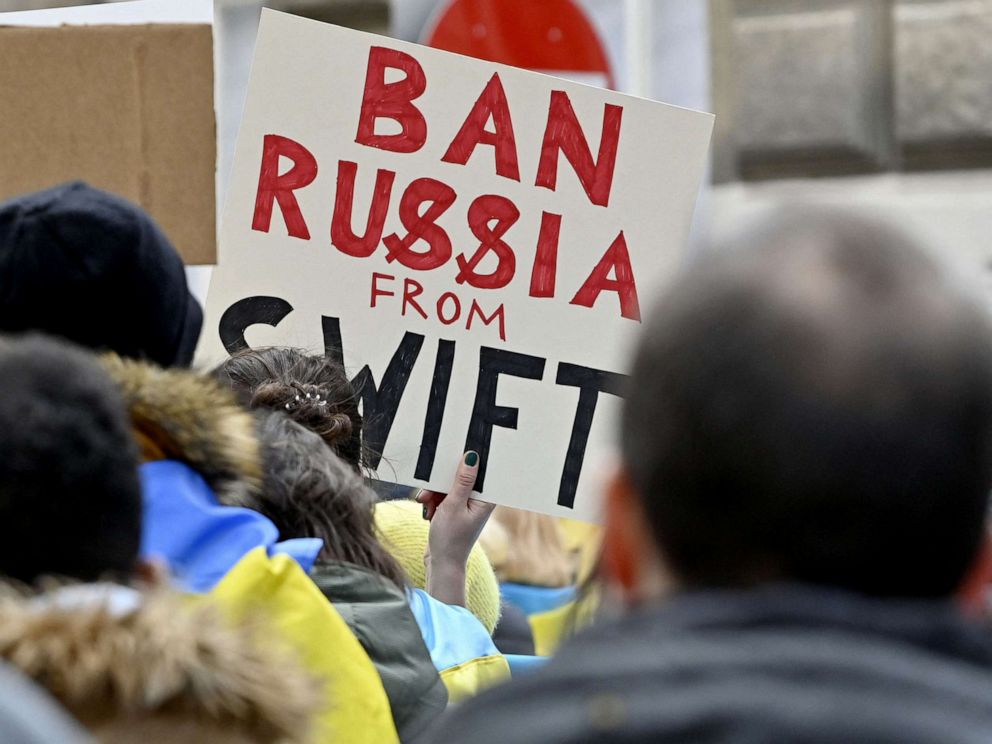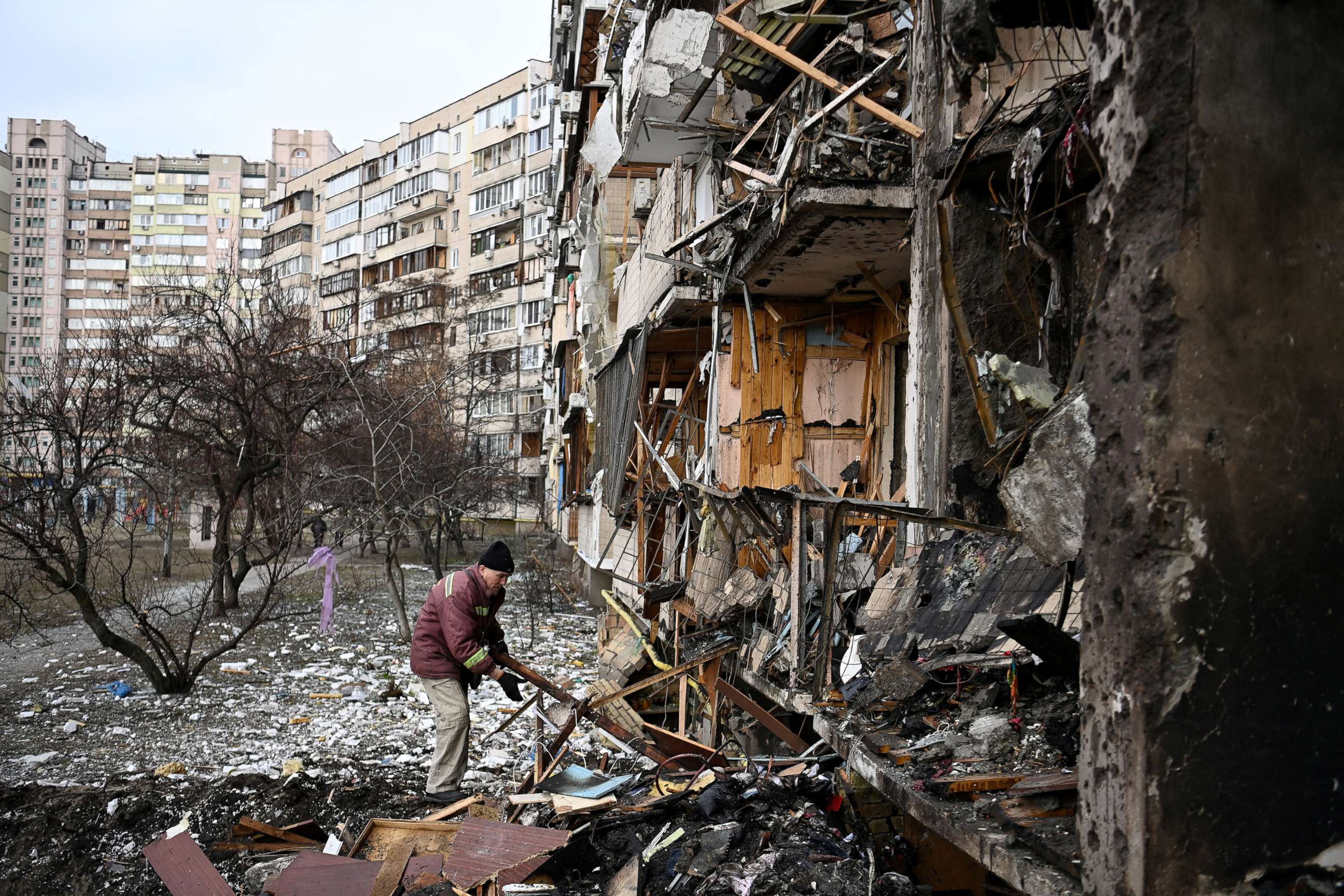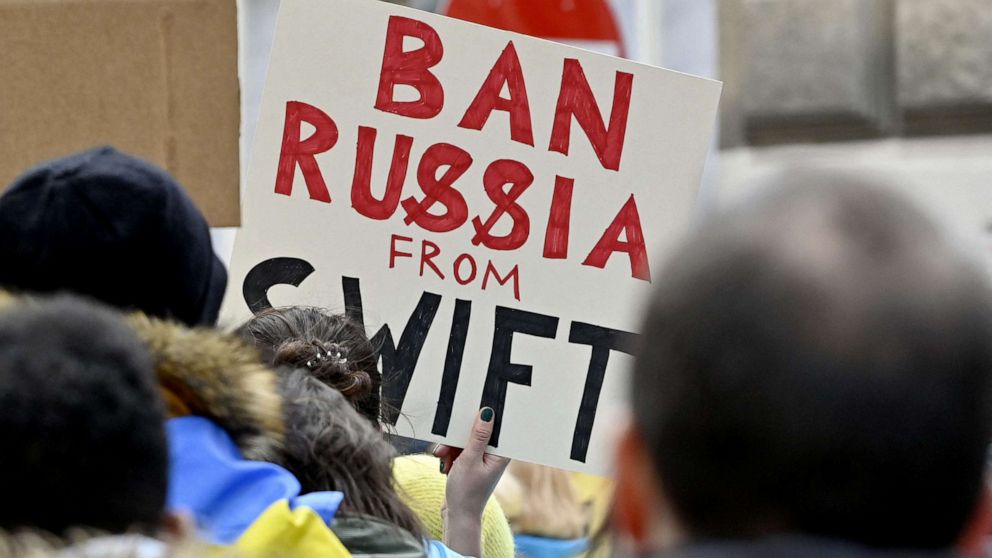What is SWIFT and why it's being called the 'nuclear' option for Russian sanctions
As Western allies levy increasingly harsher economic sanctions against Russia for its invasion of Ukraine, the latest target involves Russia's access to SWIFT.
An acronym for Society for Worldwide Interbank Financial Telecommunication, SWIFT is a messaging system founded in 1973 that allows large financial institutions to send money to each other.
The Belgian-based cooperative is used by more than 11,000 banks and financial institutions in more than 200 countries and territories, including Russia. It handles 42 million messages a day, facilitating trillions of dollars worth of transactions. Russia accounted for 1.5% of SWIFT transactions in 2020, according to the Financial Times.
The White House announced Saturday evening that the U.S. will be disconnecting some Russian banks from SWIFT in partnership with the European Commission, France, Germany, Italy, the United Kingdom and Canada and are "imposing restrictive measures that will prevent the Russian Central Bank from deploying its international reserves in ways that undermine the impact of our sanctions."
"This will ensure that these banks are disconnected from the international financial system and harm their ability to operate globally," the White House said in a statement.
A senior White House official told reporters Saturday that the European Union will finalize which specific banks are cut off from SWIFT, since it is under Belgian jurisdiction.

Ukrainian Foreign Minister Dmytro Kuleba has repeatedly called for Russia to be excluded from the network for its aggression against Ukraine.
"Everyone who now doubts whether Russia should be banned from SWIFT has to understand that the blood of innocent Ukrainian men, women and children will be on their hands too," he tweeted Thursday in the wake of Russia's invasion.
Some experts believe that sanctioning banks in the way the U.S. and allies have done so far is an effective way of freezing Russian assets. If there is no money to move, the messaging system becomes moot.
Also, European countries will likely face a negative impact on their own economies from SWIFT sanctions. Germany, in particular, had been a holdout due to its reliance on Russian gas and oil supplies.
The full consequences of such a sanction are hard to forecast, and it's unclear how many Russian banks are impacted. A total ban of Russia from SWIFT, which uses the dollar as the reserve currency, could weaken the dollar as a reserve currency and thus impact the global economic dominance of the U.S.
The senior White House official said Saturday officials are trying to minimize the impact of the latest restrictions on other economies.
For days, world leaders have debated what French Finance Minister Bruno Le Maire reportedly referred to as a "financial nuclear weapon" Friday.

EU finance ministers said in a statement Friday that "all options are on the table" as they weighed further financial sanctions against Russia. On Thursday, President Joe Biden said the sanctions on Russian banks may have "more consequence than SWIFT," though also noted "it is always an option."
On Saturday, prior to the White House's announcement on disconnecting "selected" Russian banks from SWIFT, Ukrainian President Volodymyr Zelenskyy indicated in an address that Western countries had come to an agreement on SWIFT sanctions.
"For Russia it will mean being cut off [from] normal financial civilization," he said. "This is a big diplomatic victory. Russia will suffer billions upon billions of financial losses -- their price for invasion."
In a Facebook post earlier Saturday, Kuleba said the official decision had not yet been made, but the "technical preparation for the decision and the implementation of this sanction has already begun."
Being cut off from SWIFT will make it harder for Russian entities to process transactions and do business beyond its borders. Russia does have its own messaging system that it could use in tandem with China, though it would not be easy to switch over from SWIFT.
ABC News' Zunaira Zaki, Justin Ryan Gomez and Patrick Reevell contributed to this report.




